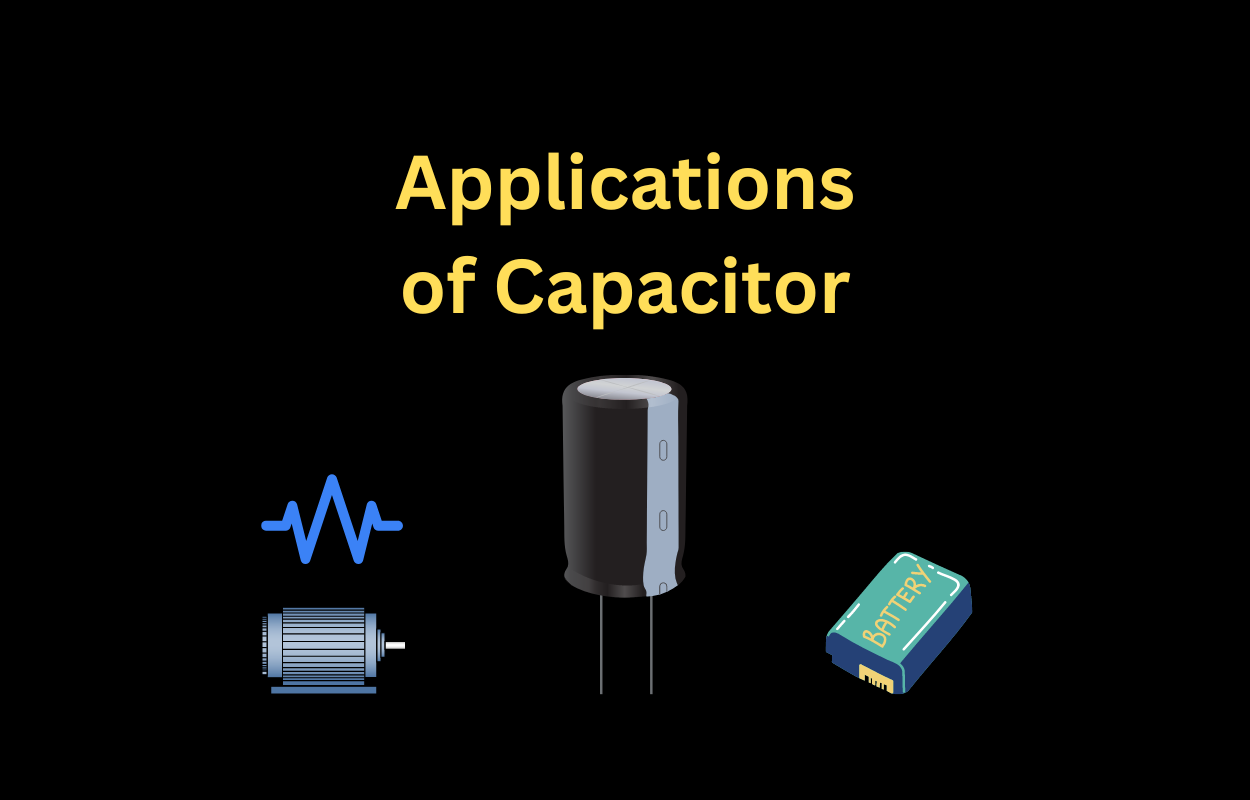A capacitor is a passive electronic component that stores electrical energy in an electric field. It is made up of two conductive plates separated by a dielectric material. The conductive plates can be made of metal, aluminum foil, or other conductive materials.
Table of Contents
When a voltage is applied across the plates, an electric field is created and the plates become charged. The amount of charge that can be stored on the plates is determined by the capacitance, which is measured in farads (F). The larger the capacitance, the more charge the capacitor can store.
Capacitors have a wide range of applications in electronic circuits and systems. They are often used to store energy, filter signals, and suppress noise. They are also used in power supplies, motors, and other types of electronic devices. Capacitors can be found in a wide range of sizes, from tiny capacitors that are used in electronic devices to large capacitors that are used in power systems.
Capacitors are classified into different types based on their dielectric material such as ceramic, tantalum, aluminum electrolytic, film capacitors, paper capacitors, and many more. Each type of capacitor has its own characteristics and is suited for specific applications.
In summary, a capacitor is an electronic component that stores electrical energy in an electric field, which can be used in a wide range of electronic applications such as filtering, energy storage, and signal coupling.
20 Applications or uses of Capacitors:
- Power supply filtering: Capacitors are often used in power supplies to smooth out the output voltage and remove any ripple.
- Signal coupling: Capacitors are used to pass AC signals while blocking DC signals in circuits.
- Timing: Capacitors are used in timing circuits, such as oscillators and timers.
- Motor starting: Capacitors are used in motor starting circuits to provide a temporary boost of power to get the motor running.
- Energy storage: Capacitors can be used to store electrical energy for later use. This is commonly used in applications such as flash photography, backup power supplies, and electric vehicles.
- Noise suppression: Capacitors can be used to reduce electrical noise in circuits by blocking high-frequency signals.
- DC-DC converters: Capacitors are used in DC-DC converters to smooth the output voltage and reduce ripple.
- Dynamic braking: Capacitors are used in dynamic braking circuits to dissipate the energy stored in a motor.
- Coupling and Decoupling: Capacitors are used in coupling and decoupling circuits to provide an AC path and DC isolation.
- Resonant Circuits: Capacitors are used in resonant circuits to tune the circuit to a specific frequency.
- Motor Run Capacitor: Capacitors are used in AC motors to improve the power factor and to reduce the current.
- Power Factor Correction: Capacitors are used to improve the power factor of a circuit, by supplying reactive power.
- Transient Voltage Suppression: Capacitors are used to suppress the transients in a circuit, which can cause damage to electronic devices.
- Audio and Radio Frequency Circuits: Capacitors are used in audio and radio frequency circuits to filter out unwanted signals.
- Surge Protection: Capacitors are used to protect electronic devices from voltage surges, by diverting the surge energy to the ground.
- Pulsed Power: Capacitors are used in pulsed power systems to store energy and release it in high-energy pulses.
- High Voltage DC-DC Conversion: Capacitors are used in high voltage DC-DC converters to smooth the output voltage and reduce ripple.
- AC Voltage stabilization: Capacitors are used in AC voltage stabilization circuits to regulate the voltage and improve the power quality.
- Harmonic filtering: Capacitors are used in harmonic filtering circuits to reduce harmonic distortion and improve power quality.
- DC Link Capacitor: Capacitors are used in inverters and converters as DC link capacitors to smooth the DC current and reduce ripple.
Thanks for reading Amazing Knowledge
